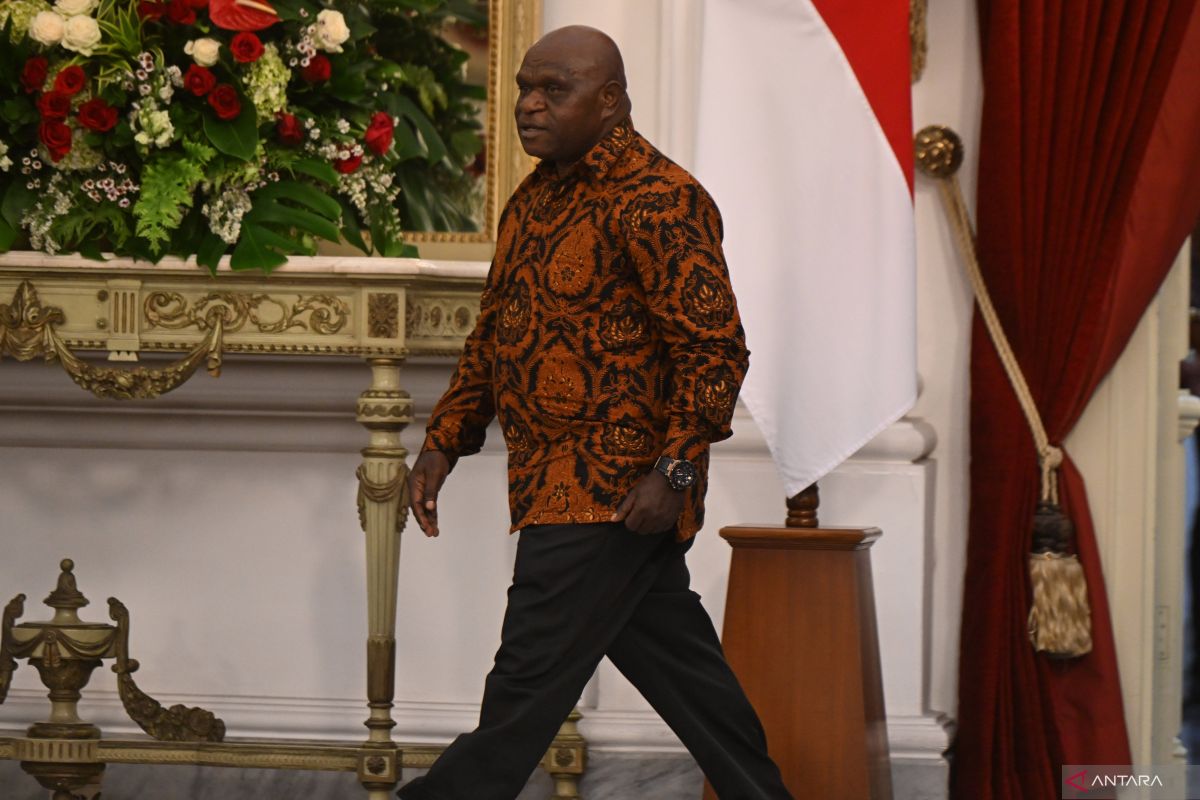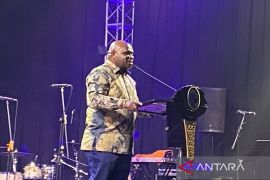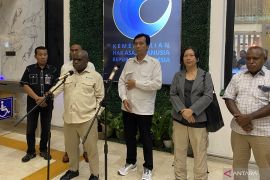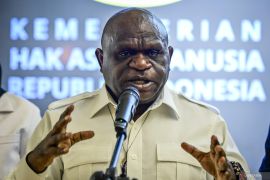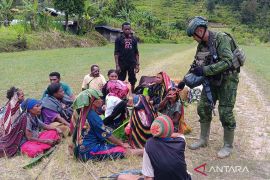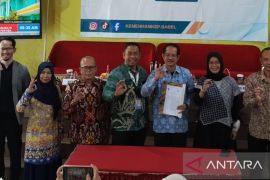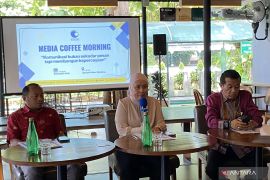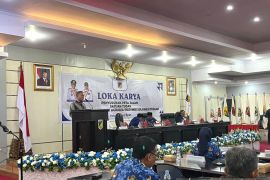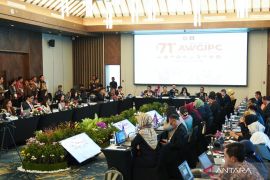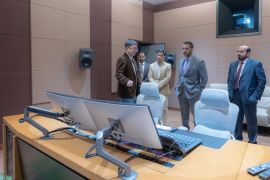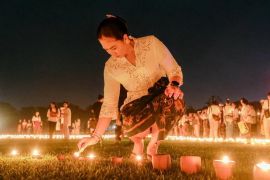Pigai is well-known for his human rights activism. Born in Paniai district, Central Papua, on June 28, 1975, he has been an activist with various institutions.
From 1999–2002, he worked with the Yayasan Sejati Foundation, which focused on the rights of marginalized communities in Papua, Dayak, Sasak, and Aceh.
Pigai, who graduated with a Bachelor of Government Science (S.IP.) degree from Yogyakarta Rural Community Development College (STPMD) and also took a statistics course at the University of Indonesia (UI), joined the Cindelaras Foundation in 1998.
He worked there as a staff at the foundation which focused on farmers' rights.
As a Papua native, Pigai played an active role in Papuan cultural development activities carried out by Studi Renaissance Institute, serving as chairperson of the institute from 1998 to 2000.
He was also chair of the Papuan Student Alliance (AMP) from 1997–2000 and active in civil society work such as conducting discussions, seminars, and change-oriented actions.
He was also a part of the Indonesian Forum for the Environment (WALHI), the Union of Catholic University Students of the Republic of Indonesia (PMKRI), the now-dissolved Democratic People's Party (PRD), and Petisi 28.
Pigai was not only active in non-governmental organization (NGO) activities in Indonesia, but also worked in the public sector.
He served as the special staff to the Manpower and Transmigration Minister from 1999–2004, serving under both Alhilal Hamdi and Yacob Nuwa Wea.
He was also a consultant to the Deputy of Supervision of the Rehabilitation and Reconstruction Agency and a part of the assistance team at the Home Ministry's Directorate General of Regional Autonomy from 2010 to 2012.
Between 2006 and 2008, Pigai was entrusted with the task of guiding interactive dialogues related to political and government issues. The dialogues were broadcast on national television TVRI.
He also wrote prolifically about the condition of human rights in Papua and other issues concerning migrant workers, disabled workers, and the children of migrant workers.
From commissioner to minister
Pigai's dedication to fighting for human rights fulfillment led to his appointment to the National Human Rights Commission (Komnas HAM) from 2012 to 2017. He served as commissioner for monitoring and investigation at Komnas HAM.
His main job was to monitor and observe the implementation of human rights and investigate suspected violations of human rights values.
His authority included summoning complainants, defendants, victims, witnesses, and other related parties, for Komnas HAM reports.
He also reviewed incident scenes and provided human rights opinions in court on certain cases.
Based on his track record, President Prabowo trusted him with the post of Minister of Human Rights for the next five years.
Pigai will be the first Minister of Human Rights of Indonesia. The ministry has been newly formed in the Red and White Cabinet.
The Ministry of Human Rights has been carved out of the previous Ministry of Law and Human Rights.
It is under the auspices of the Coordinating Ministry for Law, Human Rights, Immigration, and Corrections led by Coordinating Minister Yusril Ihza Mahendra.
As Human Rights Minister, Pigai will focus on steering the course of human rights values in the country, including the respect, protection, fulfillment, enforcement, and promotion of human rights (P5HAM).
He will later be assisted by Deputy Minister Mugiyanto, who is also a known figure in human rights activism.
Mugiyanto is a graduate of Gadjah Mada University (UGM). Between 2000 and 2014, he was chairperson of the Indonesian Association of Missing Persons (IKOHI).
From 2015–2020, he served as the senior program officer for human rights and democracy at the International NGO Forum on Indonesian Development (INFID).
Pigai was inaugurated by Prabowo at the State Palace in Jakarta on Monday morning along with other Cabinet ministers and officials.
He took the oath to be loyal to the 1945 Constitution, to carry out all laws and regulations as true as possible, and to work by upholding ethics and with full responsibility.
Wealth
Based on his last State Administrator's Wealth Report (LHKPN), dated 2019, Pigai has a total wealth of Rp4.3 billion (around US$282 thousand). His assets consist of a 2011 CRV Jeep worth Rp300 million, movable assets of Rp70 million, securities worth Rp2 billion, and cash and equivalent of Rp2 billion.
Supporting Asta Cita
President Prabowo and Vice President Gibran Rakabuming Raka have formulated eight main missions called Asta Cita for their term.
Two of the eight missions concern strengthening the ideology of Pancasila, democracy, and human rights, and boosting gender equality and the roles of women, youth, and people with disabilities.
The two missions are closely related to Pigai and Mugiyanto's responsibilities at the Ministry of Human Rights.
Related news: Komnas HAM accomplishes mission to uncover FPI shooting case
Related news: Komnas HAM recommends transparent trial for FPI members' shooting case
Editor: Rahmad Nasution
Copyright © ANTARA 2024
